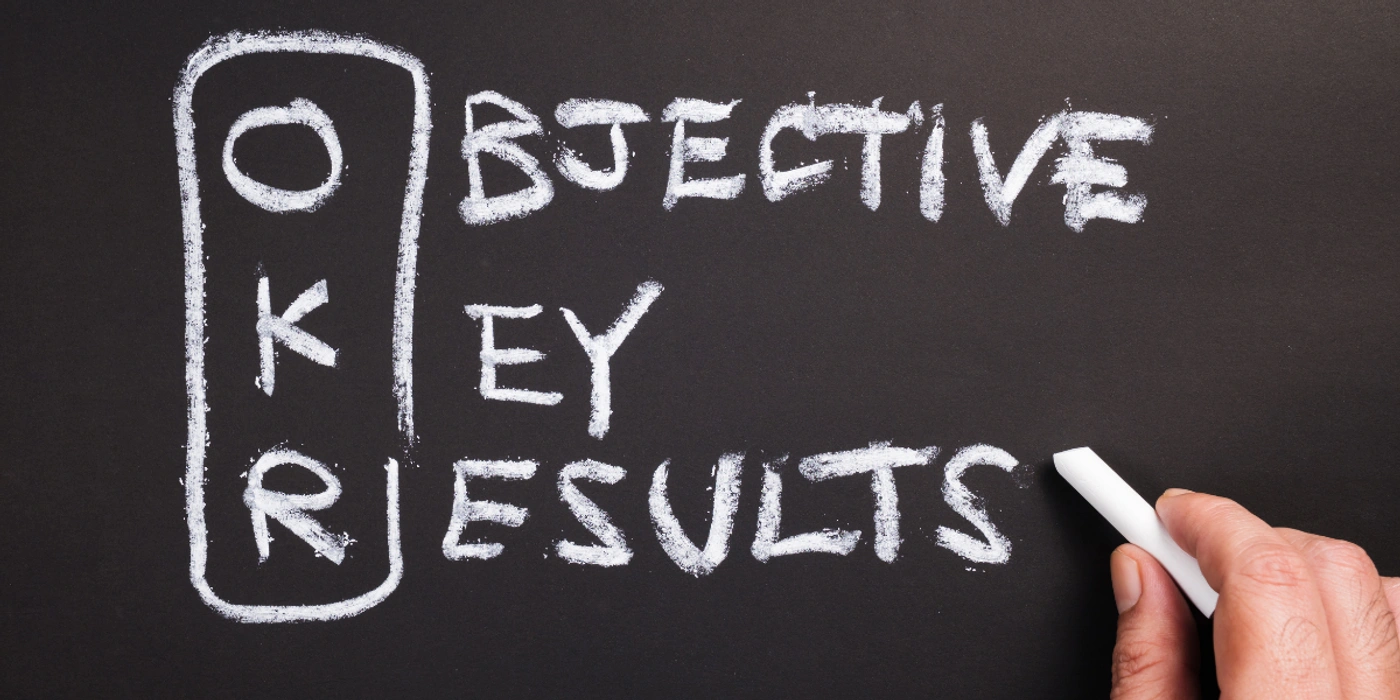How to motivate your teams with the OKR method?

How do you get your teams to collaborate towards ambitious goals ? How to stay motivated in business? More and more organizations are turning to the OKR method ! This management method was born in the 50s in the United States. Since then, it has continued to appeal to companies that can achieve collective results and faster growththan their competitors thanks to this model. So, how do you set up the OKR method and what are its benefits?
What is OKR?
Definition
OKR comes from the English " Objectives and Key Results ". This is a management methodthat is based on two actions. One is setting ambitious goals, the other is measuring key results. Put another way, goals indicate the company's mission and the direction it wants to take in the next few years. They must be pursued by all teams through a strategy put in place. With this strategy, multiple tasks can be defined and associated with measurable goals and outcomes. All these tasks will have to achieve the major objective of the company.
A bit of history
It was Intel co-founder and CEO Andrew Grove who propelled this method into the 1970s. At the time, Grove noticed that the methods used until now failed to keep up with the speed and growth of Silicon Valley companies. The OKR method allowed him to motivate his team to turn his small business into a tech giant. In 1975, John Doerr, one of Google's first investors, attended a lecture given by Andrew Grove in which he presented the OKR method. In turn, he passed on the OKR method to Google's two founders: Larry Page and Sergey Brin. Since then, the method has still been at the heart of Google's operations and other large groups have adopted it: Twitter, LinkedIn, Netflix, etc.
This method is mostly used by large companies but can of course be applied to smaller companies such as SMEs or start-ups.
How to use the OKR method?
As we have seen, the first thing to do is to set ambitious goals formulated in a qualitative way. That's the whole point of this method: to achieve results that were thought unattainable. Then, we define a strategy that will allow us to achieve the company's mission with intermediate objectives assigned to each department, team and employee. These objectives must be accompanied by measurable and quantifiable results to know whether they have been achieved. It's also a good idea to insert key milestones to validate along the way for each team to ensure that you're moving in the right direction. The teams have to work towards the same goal, but have a lot of autonomy and manoeuvre. This should make it possible to involve them as much as possible in the company's mission.
John Doerr's wording can help you use OKR correctly: "We will have (objective), which will be measured by (key results)." For example, if we apply this method to Google, one of their inspiring goals in 2008 was to "build the best web browser in the world." To do this, they have set a key quantifiable result: to reach "20 million users by the end of 2008".
Why use OKR?
The Need for Meaning
Every individual needs to find meaning in their work. By feeling involved in the project and the company's decisions, employees can give the best of themselves. In this sense, the OKR method satisfies this need by allowing teams tocome together around a common and meaningful goal. In addition, each task entrusted to us is part of a global and collective panorama, which is all the more motivating.
Gain in productivity
Since teams are autonomous and fully involved in achieving the company's goal, they naturally become more productive. As the tasks are shared between the people, the work is lighter. This saves a considerable amount of time and no one dwells on unnecessary or counterproductive tasks.
Full transparency
By implementing this methodology, the objectives and key results are visible to all members of the organization. This promotes transparency between teams . This approach is based on regular exchanges and check-ins that allow each team to collaborate together and know where each one stands.
For more content, feel free to visit our Linkedin and Instagram !
Discover our positive impact companies
Meet My Job is the 1st Belgian recruitment platform dedicated to sustainable development. So, what are you waiting for? Find your dream job/internship in sustainability here !